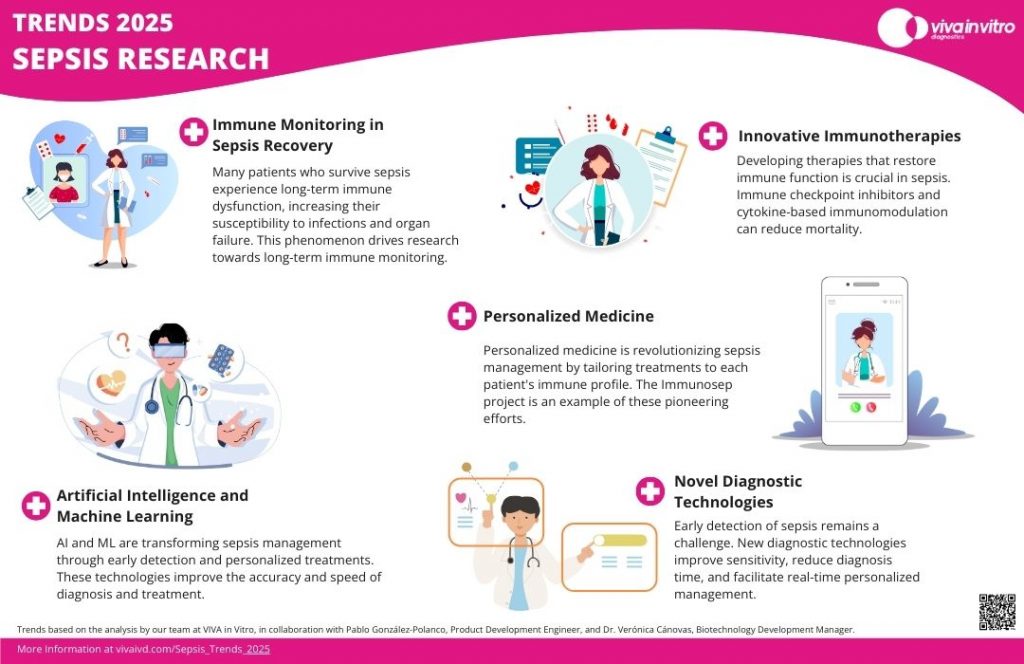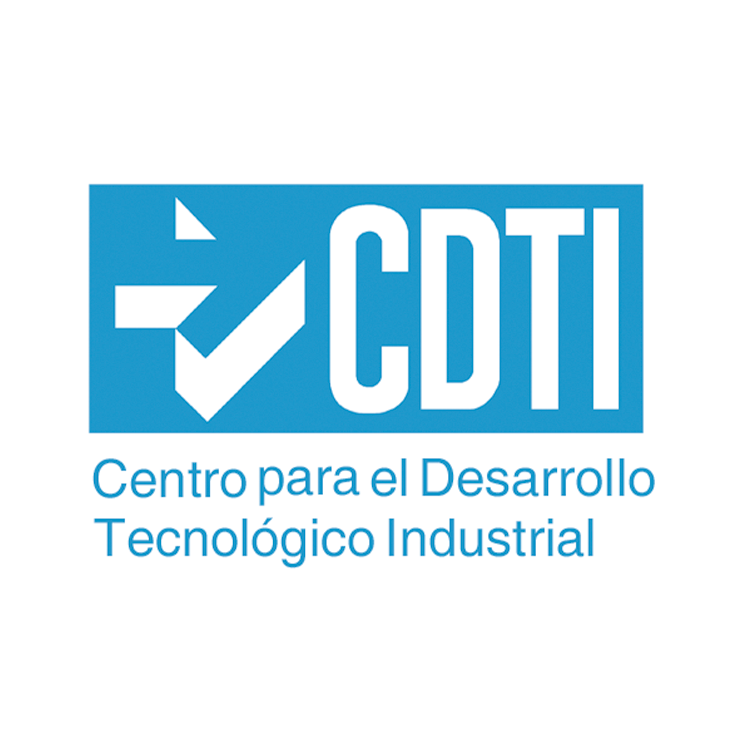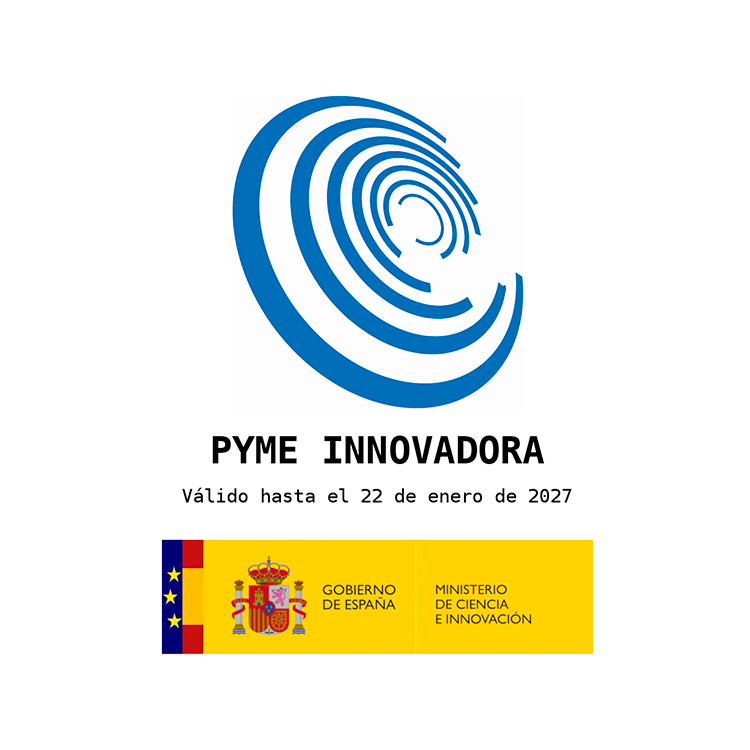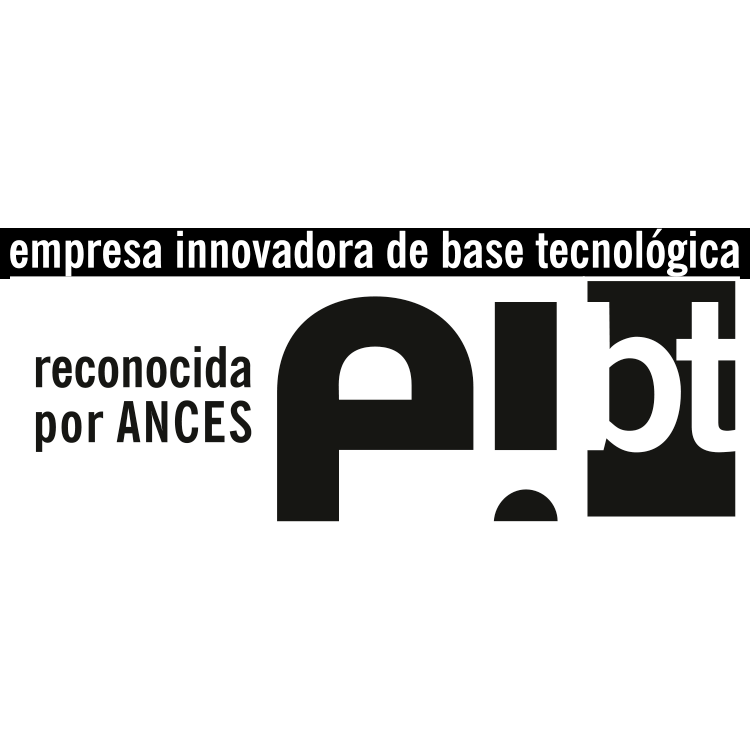Sepsis continues to be one of the leading causes of mortality and morbidity worldwide, affecting both healthcare systems and millions of patients and their families. With nearly 48.9 million cases annually worldwide and 11 million deaths, this condition represents a critical challenge that demands innovative solutions.
In Spain, the incidence reaches 212 cases per 100,000 inhabitants per year, with mortality rates ranging from 15% to 50%, depending on the severity and speed of treatment. These figures highlight the urgent need to improve diagnostic, treatment, and follow-up strategies for affected patients.
From Viva in Vitro, in collaboration with Pablo González-Polanco, Product Development Engineer, and Dr. Verónica Cánovas, Biotechnology Development Manager, we have identified the main trends that are transforming the approach to sepsis. Here we share an in-depth analysis of these innovations:
1. Immune Monitoring in Sepsis Recovery
Many patients who survive sepsis suffer from long-term immune dysfunction, increasing their susceptibility to recurrent infections, new sepsis episodes, and even organ failure. This phenomenon, known as “sepsis-induced immunosuppression,” is driving research towards long-term immune monitoring.
Developing tools that enable more precise monitoring of the immune system will not only improve the quality of life for survivors but also reduce hospital readmission rates, a growing problem in healthcare systems.
2. Personalized Medicine Applied to Sepsis
The advent of personalized medicine is revolutionizing sepsis treatment by tailoring therapeutic interventions to the specific immune response profiles of each patient. Since immune dysfunction in sepsis varies widely, from hyperinflammatory to immunosuppressive states, personalized strategies aim to identify these variations and provide targeted solutions.
A notable example is the Immunosep project, led by Mihai Netea, a member of our International Scientific Advisory Committee, which is developing pioneering approaches to personalize treatments based on the individual needs of patients.
3. Innovative Immunotherapies
In the context of sepsis, where immunosuppression represents a significant obstacle, the development of new immunotherapies offers great potential. Among the strategies under development are immune checkpoint inhibitors (ICIs) and cytokine-based immunomodulation, which are showing promising results in restoring immune function and reducing mortality.
Each advance in this field represents the possibility of saving thousands of lives worldwide, highlighting the importance of investing in such research.
4. Artificial Intelligence and Machine Learning
The use of artificial intelligence (AI) and machine learning (ML) is revolutionizing the diagnosis and treatment of sepsis. These technologies are enabling:
- Earlier detection of cases through the analysis of large volumes of clinical data.
- Risk stratification to identify patients with a higher likelihood of complications.
- Personalization of treatments based on each patient’s specific data.
The great challenge is not only to develop these tools but also to ensure that healthcare professionals receive the necessary training to effectively integrate them into their daily clinical practice.
5. New Diagnostic Technologies
Early detection remains one of the most critical challenges in the treatment of sepsis. However, advances in diagnostic technologies are making a difference. Tools designed to improve sensitivity, reduce diagnosis time, and facilitate real-time personalized management are beginning to be implemented in clinical settings.
These solutions have the potential to significantly improve outcomes for patients, especially those with sepsis-induced immune dysfunction, by enabling more timely and effective intervention.
References
- Immune Monitoring in Sepsis Recovery
- Immunosep https://www.immunosep.eu/ (by Mihai Netea)
- Nature Article by Mihai Netea https://www.nature.com/articles/s41590-023-01660-5
- Review 2024 on Immunosuppression in Sepsis. https://www.sciencedirect.com/science/article/pii/S1008127523001141
- Clinical Trials on Immunotherapies in Sepsis
- AI and Machine Learning in Sepsis Management
- Novel Diagnostic Technologies for Sepsis Management








